| SDGs |
SDGs Indicators |
Projects |
2024 Performance |
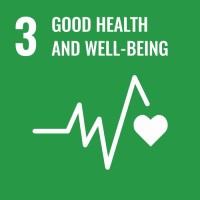 |
3.4 Through prevention and treatment and promote mental health and well-being |
- Healthy risk map
- Specialist consultation
- EAP
|
- Align with health assessment, incorporating the newly added “mental health” topic in 2024, and plan mitigation measures in response to the relative risk.
- A total of 701 usage counts have been recorded through 188 health specialist consultation meetings.
- A total of 118 usage counts have utilized the Employee Assistance Program (EAP).
|
| 3.8 Provide basic medicines that are available and affordable |
- Heath examination
- Blood donation
|
- The subsidy was NT$3,500 per employee. A total of 1,371 employees underwent health examinations; a total of 560 new-hires received health check subsidies, The annual accumulated subsidies amounted to NT$6,456 thousand.
- Organized 3 blood donation events collaborated with Taipei Blood Donation Center, with a total of 261 donor visits, collecting 104,000 ml of blood.
|
| 3.c Increase the recruitment of the health workforce |
- Health promotion activities
|
- Recruit 4 health managers providing healthcare and consulting service.
- Recruit 1 exercise coach and cooperate with external coaches providing employees with sports classes.
|
| 3.7 Support employees have sufficient and affordable family planning sources |
- Maternity benefits
|
- 41 SYSTEX babies benefited from the “SYSTEX Baby Happy Funds” Program, receiving a total subsidy of NT$3.92 million, which brings the cumulative total of NT$15.28 million for 297 SYSTEX babies since its inception.
- “Maternal Health Protection Program” provided healthcare to 31 pregnant and postpartum return employees.
- Launch in 2024: “8 days of full-paid paternity” and “3 days of full-paid parental leave.”
|
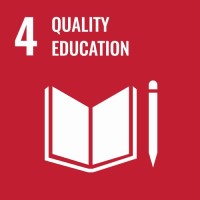 |
4.1 Provide free primary and secondary education |
- Code Seed Camp
|
- Organized the “CSC Program” during summer, which aims to cultivate the programming interests of employees’ kids with a total of 207 participants, cumulative total of NT$1,882 thousand for 841 participants since its inception.
|
| 4.4 Provide vocational skills for employment |
- Cultivate technology talents
|
- 48,830 participants were trained for a total of 143,163 hours. The average training hours was 35.4 hours. Total employee training expenditure accounted to approximately NT$27M, with the average employee expenditure being NT$6,652.
|
| 4.4 Enhance Youth’s obtainment of ICT skills (TSDGs) |
- Young Turing Program
- Industry-university joint program
|
- 227 senior high school teams and 68 junior high teams, totaling 841 participants, joined the 9th YTP, bringing the total to 1,521 teams and 4,469 participants since its inception.
- Collaborated with the FCU to establish the Postgraduate Program in Computer Science, totaling 16 students participating in the initiative.
|
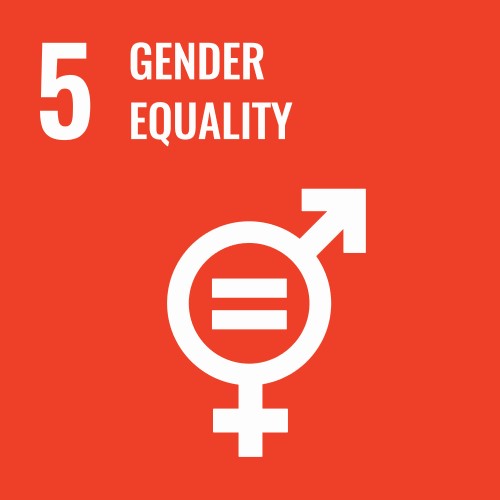 |
5.5 Ensure women’s equal opportunities for leadership |
- Female leaders
|
- The share of female managers is 11.8% at the senior level, 26.8% at the middle level, 25.2% overall, and 22.2% in revenue-related departments.
|
| 5.b Improve women’s enabling use of ICT |
- Young Turing Program
|
- Formulate the “Female Guarantee Quota Mechanism,” resulting in 145 female students registering for 9th session. More than 100 female students have participated annually over the past 5 years, totaling 599 female participants.
|
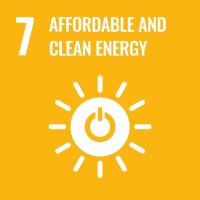 |
7.2 Renewable energy |
- Renewable energy
|
- Implement an internal carbon pricing mechanism, utilizing 260,000 kWh of RE with a 4.6% renewable energy share.
|
| 7.3 Improve the energy efficiency |
- Environmental sustainability policy
|
- Maintain ISO 50001 certification with annual audits and ongoing compliance.
- Continuous replacement of chiller units and air conditioners has achieved electricity savings of over 195,000 kWh.
|
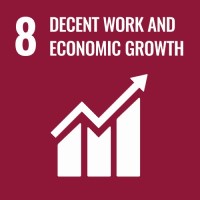 |
8.2 Achieve higher levels of economic productivity through diversification, technological upgrading |
- Sustainable services
- Technique development committee
- Enlarge R&D investment
|
- Develop sustainable solutions for clients through core capabilities with a total of 50 solutions.
- Conducted in-class or online technical training tailored to the 6-capability cultivation mechanism, with a total of 10,787 participants and 63,297 hours, resulting in an average of 21 hours of tech training per tech employees.
- Invested NT$716.812 thousand in R&D with a 28.3% annual increase.
|
| 8.3 Encourage the growth of micro-sized enterprises |
- AI+ Generator Program
- ESG Innovation Alliance
|
- A total of 8 Startups were selected for the “7th AI+ Generator Program,” and cumulative 52 Startups selected.
- 17 Startups were selected in the 3rd IMV, accumulated 52 startups won the competition.
|
| 8.4 Decrease the negative impact of the value chain |
- Green sustainable supply chain
|
- The total procurement amount: Local – NT$16.2 billion (59.2%), Green Products – NT$340 million (65.3%).
- 3,016 suppliers signed the “Vendor Integrity Pledge and Declaration”; 2,210 suppliers signed the “CSR Code of Conduct.”
|
| 8.6 Reduce the youth unemployment |
- SYSTEX Elite Internship
|
- SYSTEX Elite Internship program provides 160 vacancies, sharing practical experiences, accumulative 848 participants.
|
| 8.8 Promote safe and secure working environments |
- Occupational health and safety management
|
- Maintain ISO 45001 certification with annual audits and ongoing compliance.
- Conducted all internal and external OHS training with a total of 7,078 participants and 16,225 hours.
|
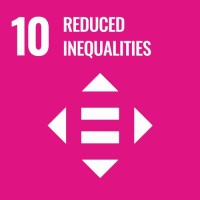 |
10.2 Promote the social inclusion of all |
- Promoting diversity and inclusion
|
- Hiring 36 employees with disabilities (including 17 employees with severe disabilities), 24 aboriginals, 9 foreign nationals, 196 employees with high-school diplomas, and 855 employees aged over 50 (inclusive).
|
| 10.3 Ensure equal opportunity and reduce inequalities of outcome |
- Gender equality measure
- Young Turing Program
- PaGamO
|
- Conducted annual training on human rights and gender equality with a total of 8,144 participants and 16,567 hours, while advocating the Code of Conduct on gender equality quarterly with a total of 16,715 participants.
- Full transportation subsidies were provided to participants, and nearly NT$400,000 was invested in sponsorships to support high schools and universities in promoting information education.
- Cumulatively donated NT$4 million over 4 years to PaGamO, providing free platform access to 2 remote schools.
|
| 10.6 Optimize the capacity of social innovation (TSDGs) |
- AI+ Generator Program
- ESG Innovation Alliance
|
- A total of 8 Startups were selected for the “7th AI+ Generator Program,” and cumulative 52 Startups selected.
- The 3nd IMV selected 17 Startups, supporting their development by offering scholarships.
|
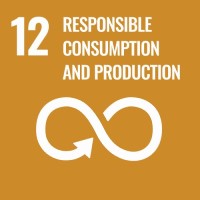 |
12.2 Achieve the sustainable management |
- Environmental sustainability policy
- Environment management measure
|
- Maintain ISO 14001 certification with annual audits and ongoing compliance.
- Implement e-forms to replace paper forms, reducing paper usage by 467,000 sheets compared to the previous year.
|
| 12.5 Reduce waste generation |
- Environment management measure
|
- Office waste was categorized, and monthly recycling data was compiled by the contracted cleaning company. In total, 39.7 tons of waste were generated, with 10.4 tons recycled, achieving a 26.2% recycling rate.
|
| 12.6 Merge Reporting |
- Issues ESG report
|
- ESG reports are issued annually, with 6 Chinese versions (2019–2024) and 4 English versions (2021–2024) released.
|
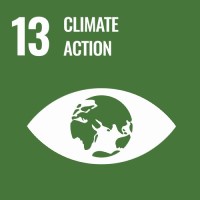 |
13.2 GHG emission control |
- GHG management
|
- Annually conduct ISO 14064-1 audits and obtain the certification.
|
| 13.3 Improve education and institutional capacity for climate change |
- Environment education advocacy for internal & external
|
- Held 70 marketing events and seminars on environmental trend, totaling over 1,200 participants; arranged 15 green technology site visits at the “Tainan Shalun Smart Green Energy Center.”
- Echoing green initiative campaigns such as “Earth Hour” and the “Melting Greenland” film screening program..
|
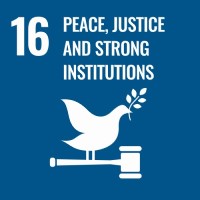 |
16.5 Reduce degradation
16.6 Develop effective, accountable, and transparent institutions at all levels
|
- Integrity Committee
- Sustainable supply chain
|
- Advocated the Employee Code of Conduct monthly; 8 sessions focused on ethical business practices and the protection of personal information and trade secrets, reaching 33,388 participants with a 99.1% completion rate.
- Held 2 integrity advocacies for employees with a total of 7,850 participants.
- Held an online course and test on “Prohibition of insider trading” with a total of 3,951 participants.
- There were 0 incidents of dishonesty or bribery in 2024.
- The “Supplier CSR Code of Conduct” signing rate exceeds 99%.
|
| 16.b Non-discriminatory laws |
- Human rights advocacy
|
- Advocated for 4 cases on gender equality, totaling 16,715 participants with a 98.9% completion rate.
|
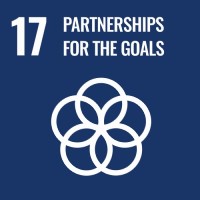 |
17.16 Enhance the Global Partnership for Sustainable Development |
- AI+ Generator Program
- ESG Innovation Alliance
|
- 17 Startups were selected in the 3rd IMV, accumulated 52 startups won the competition.
- Co-initiated the “ESG Technology Innovation Promotion Alliance” as a founding member, and organized the “3rd IMV event,” selecting 17 startups with a total prize of NT$5.1 million..
|











